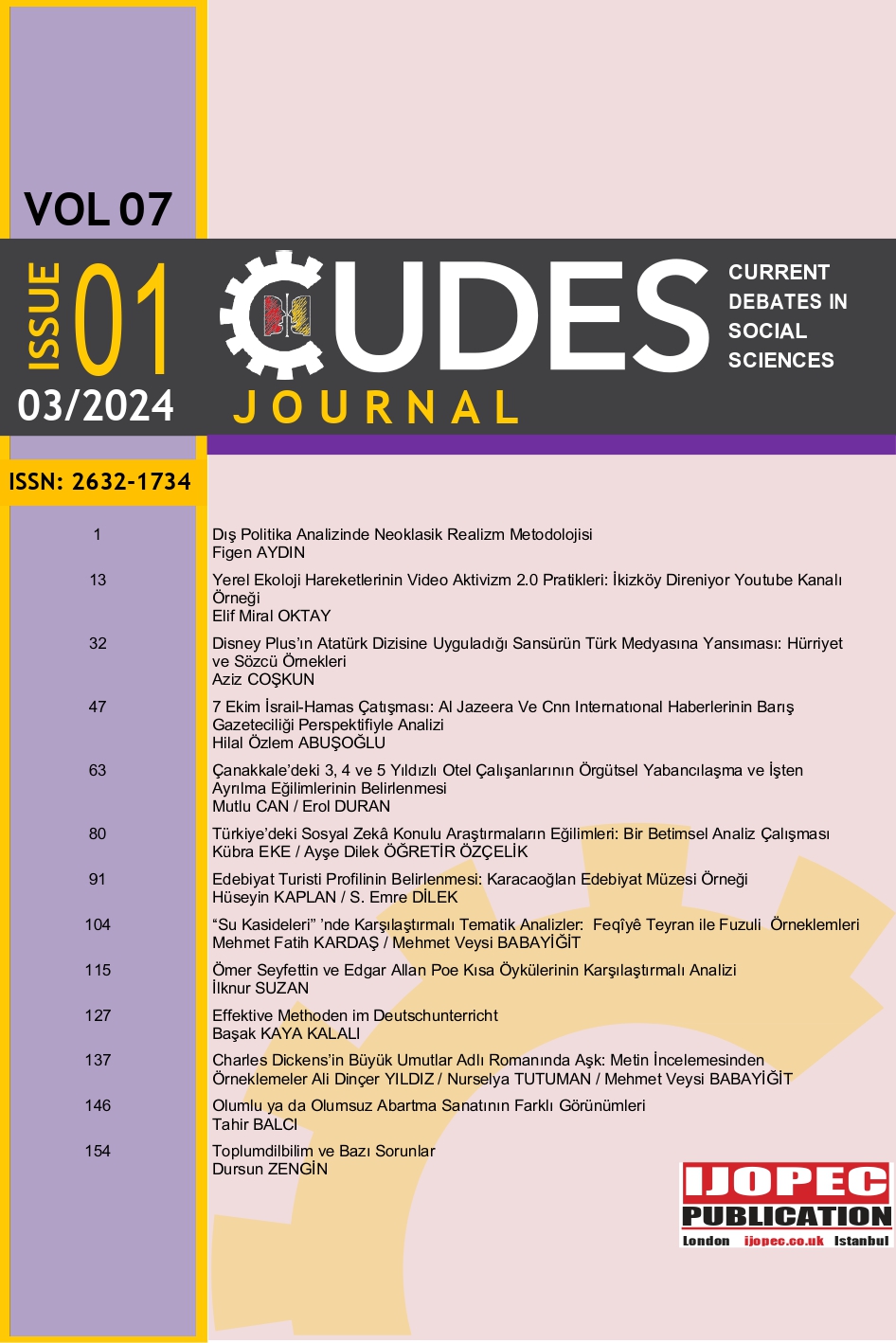Author :
Abstract
Bu çalışma, Türk edebiyatının büyük şairlerinden Fuzûlî ile Kürt edebiyatının önemli temsilcilerinden Feqî'nin, farklı kültürel kökenlere sahip olmalarına rağmen, eserlerinde ortak bir tema olarak işledikleri "su"yu karşılaştırmayı hedeflemektedir. Fuzûlî'nin "Su Kasidesi" ve Feqî'nin "Ey Av u Av" adlı şiirleri, sadece su temalı olmaları bakımından değil, aynı zamanda içerdikleri tasavvufi unsurlar ve kültürel derinlikleri ile dikkat çekmektedir. Fuzûlî'nin "Su Kasidesi," aslında Hz. Peygamber'e övgü amacı taşıyan bir kasîde olup, su motifi etrafında şekillenmiştir. Şair, suyu övgüyle anarak ona çeşitli nitelikler yükler ve bu temayı kendi dilinin estetik zenginliğiyle işleyerek klasik İslam edebiyatının önemli eserlerinden birini ortaya koymuştur. Feqî'nin Kürtçe yazılmış "Ey Av u Av" adlı şiiri ise, doğanın sembollerini ve av yaşamını kullanarak benzersiz bir tasavvufi anlam katmaktadır. Su, hem fiziksel bir varlık olarak hem de metaforik bir anlam taşıyarak, Feqî'nin şiirinde önemli bir rol oynamaktadır. Bu açıdan, Fuzûlî ile Feqî'nin su temalı eserlerindeki tasavvufi bakış açıları arasında benzerlikler bulunmaktadır. Her ne kadar dil ve kültür farklılıkları içerseler de, bu çalışma, Fuzûlî ve Feqî'nin su temalı şiirlerini derinlemesine inceleyerek, her iki şairin eserlerinde ortak bir kültürel ve estetik zemin bulunabileceğini öne sürmektedir. Bu bağlamda, Fuzûlî ve Feqî'nin su temalı şiirlerinin kültürel bağlamdaki benzerliklerini vurgulamayı amaçlayarak, bu önemli şairlerin eserleri arasındaki ortak mahiyeti anlamaya çalışmaktadır.
Keywords
Abstract
This study aims to compare the common theme of "water" in the works of Fuzûlî, one of the great poets of Turkish literature, and Feqî, one of the significant representatives of Kurdish literature, despite their different cultural origins. Fuzûlî's "Water Ode" and Feqî's "Ey Av u Av" are noteworthy not only for their water-themed poems, but also for their mystical elements and cultural depths. Fuzûlî's "Water Ode" is actually an ode in praise of the Prophet and shaped around the water motif. The poet praises water and attributes various qualities to it, and by processing this theme with the aesthetic richness of his own language, he has produced one of the important works of classical Islamic literature. On the other hand, Feqî's poem "Ey Av u Av", written in Kurdish, uses the symbols of nature and the hunting life to add a unique mystical meaning. Water plays an important role in Feqî's poetry, both as a physical entity and in a metaphorical sense. In this respect, there are similarities between the mystical perspectives of Fuzûlî and Feqî in their water-themed works. Although they have linguistic and cultural differences, this study, by analysing Fuzûlî and Feqî's water-themed poems in depth, suggests that a common cultural and aesthetic ground can be found in the works of both poets. In this context, it aims to emphasise the similarities of Fuzûlî and Feqî's water-themed poems in the cultural context, and seeks to understand the common nature between the works of these important poets.





